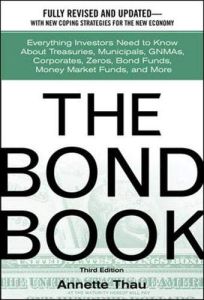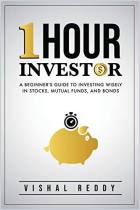Join getAbstract to access the summary!

Join getAbstract to access the summary!
Annette Thau
The Bond Book
Everything Investors Need to Know about Bonds, Treasuries, Municipals, GNMAs, Corporates, Zeros, Bond Funds, Money Market Funds and More
McGraw-Hill, 2001
What's inside?
From AAA ratings to Zero coupons, this bond investing primer tells you how to control risk and build compound interest.
Recommendation
This is an accessible introduction to bonds by a financial professional whose first book - as unlikely as it may seem – was a study of Max Jacob, the French poet. The literary background of the author, Annette Thau, may account for her book's clear, easy-to-read style. Most authors who write about bonds tend to get lost in the complex mathematics and specialized jargon of the bond markets. Not Annette Thau. Whether you are an individual investor trying to balance your portfolio with bonds, or a student of finance looking for a more lucid explanation of the subject than you can find in your textbooks, getAbstract highly recommends this book to you.
Summary
About the Author
Annette Thau, Ph.D., is a former municipal bond analyst for Chase Manhattan Bank. Until recently, Dr. Thau was a visiting scholar at the Columbia University Graduate School of Business.






















Comment on this summary